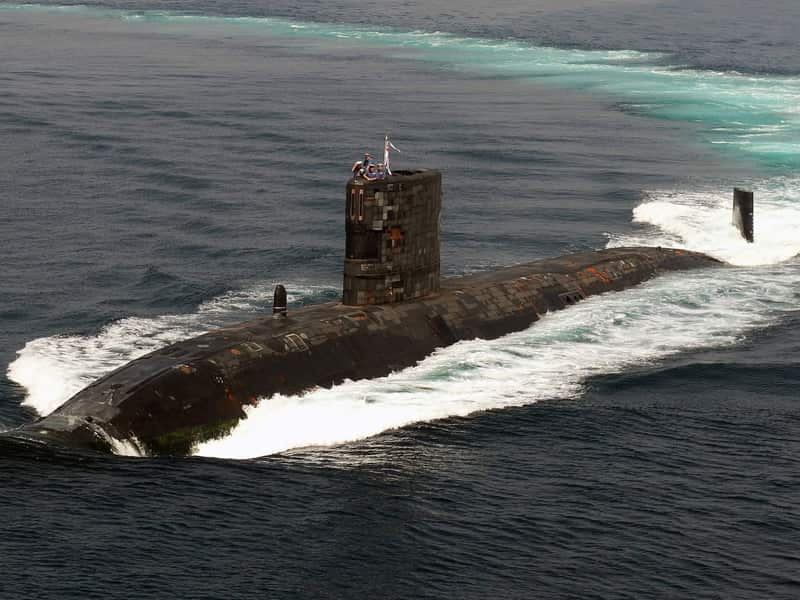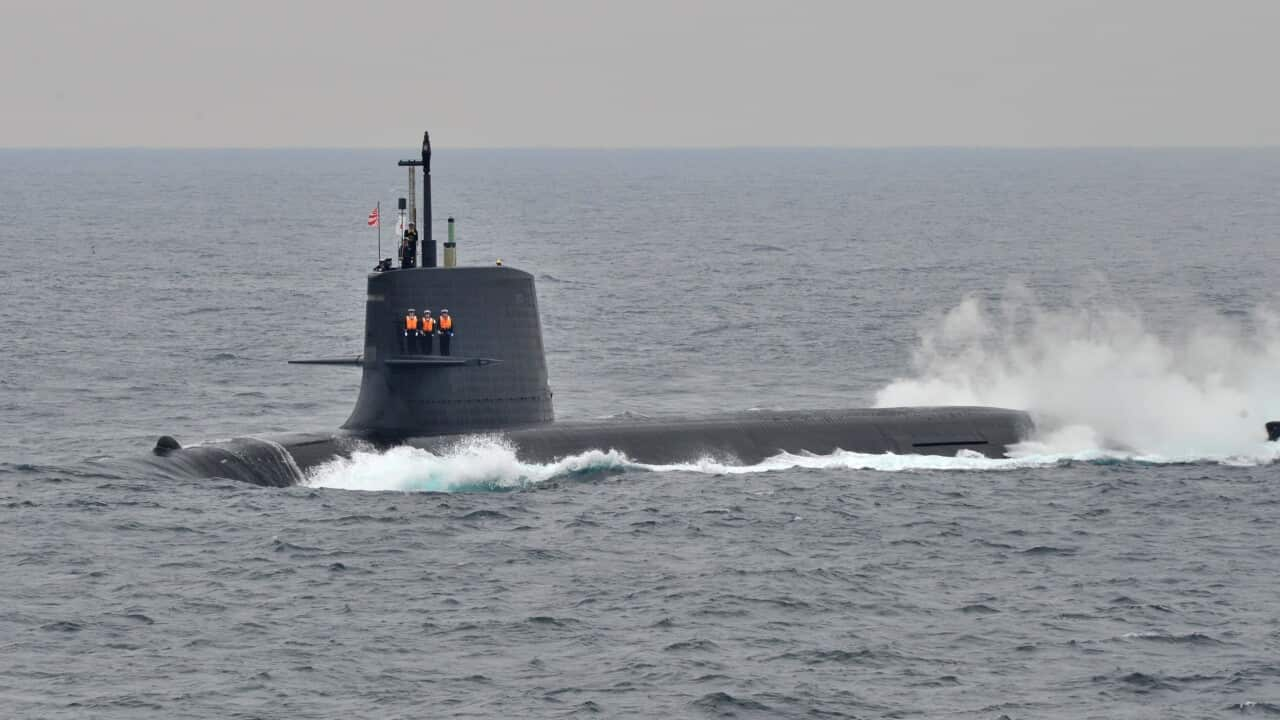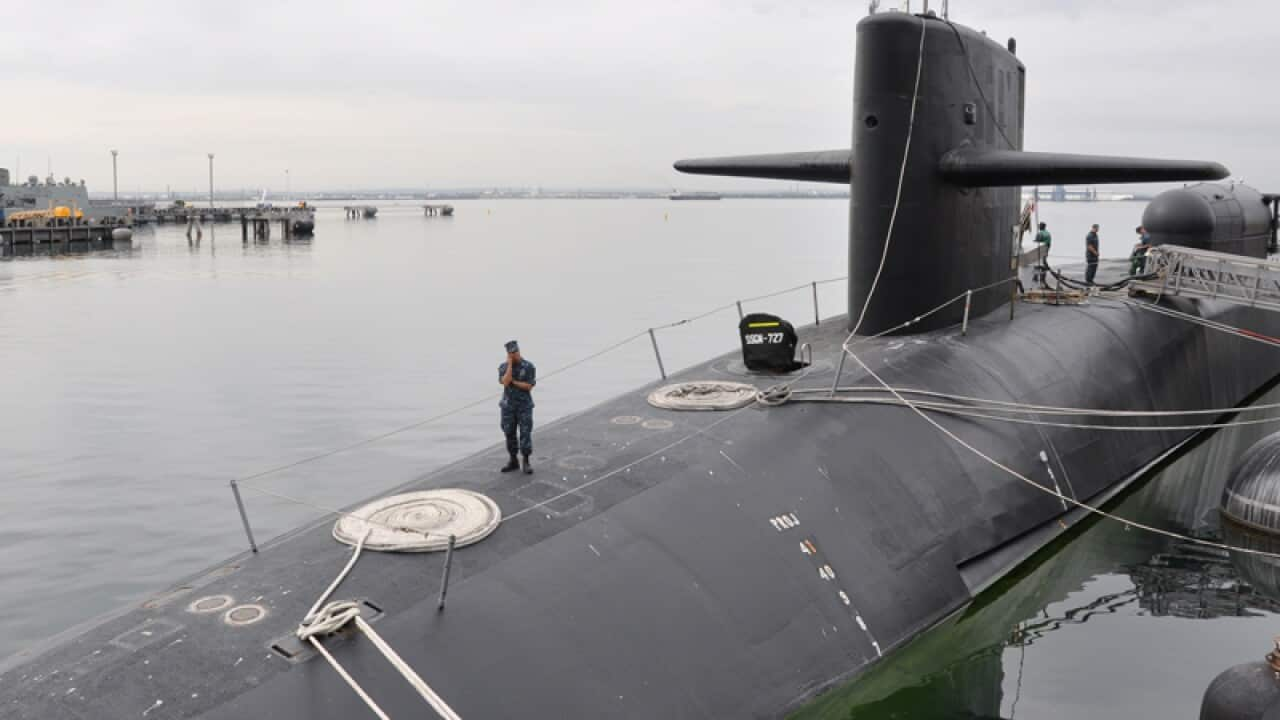The French firm bidding for Australia's new submarines has warned that buying Japanese could be a recipe for disaster.
Top executives of DCNS also say the lithium-ion batteries Japan is proposing to power the new sub remain unproven and potentially dangerous.
Herve Guillou, DCNS chairman, said buying French would not alter Australia's close strategic relationship with Japan but would bring closer ties with France. He said France was a nation with a global naval reach, a clear interest in the Indo-Pacific and was a close ally of the US and Australia in the fight against Islamic State.
He said France was a nation with a global naval reach, a clear interest in the Indo-Pacific and was a close ally of the US and Australia in the fight against Islamic State.

A recent study says defence has a shortfall in its ability to detect, track and sink enemy submarines. (AAP) Source: AAP
DCNS, German firm TKMS and the Japanese government are bidding to build 12 new submarines to replace the navy's six Collins boats in the early 2030s.
The government's competitive evaluation process is now under way with a decision expected in the next few months. The winner will be built mostly or entirely in Adelaide.
DCNS is proposing a conventionally powered version of its new Barracuda nuclear attack submarine, powered by diesel and electric engines with lead-acid batteries.
related reading

Japan envoy talks up subs bid
Japan's Soryu-class design has long been regarded as favourite. It's in service with Japan's navy and is close to the size Australia wants.
But Japan has never exported any defence technology, let alone submarines.
Mr Guillou likens that to someone wanting to learn to climb mountains and starting with Mount Everest.
"It's a recipe for disaster and the Americans are aware of it," said Marie-Pierre De Bailliencourt, DCNS deputy chief executive.
Japan is proposing to power its sub with lithium-ion batteries, a promising technology with high energy density and the potential to give the boat much longer range.
The problem is that this type of battery can catch fire. Mr Guillou said a proven safety case for using lithium-ion batteries in submarines was still some years away.
"We know that the technology is the same one used in cars and in cars they explode," Ms De Bailliencourt said.
Mr Guillou said at the end of the day any strategic relationship was totally irrelevant if there were no submarines.
related reading

Japan says submarine deal will create jobs
"Japan will remain your strategic ally and that is just because of geography."
* Defence correspondent Max Blenkin travelled to France as a guest of DCNS.
Share

